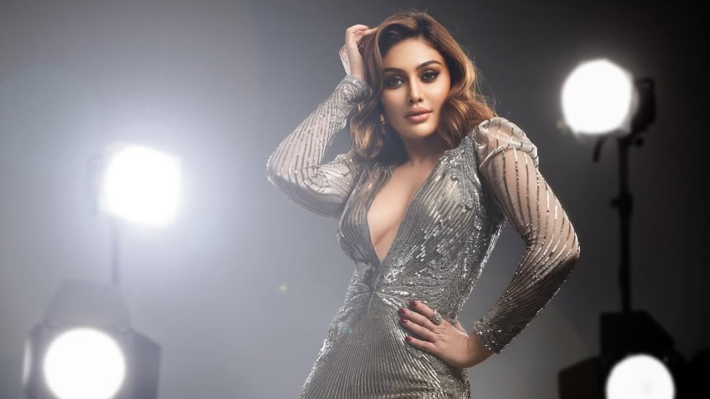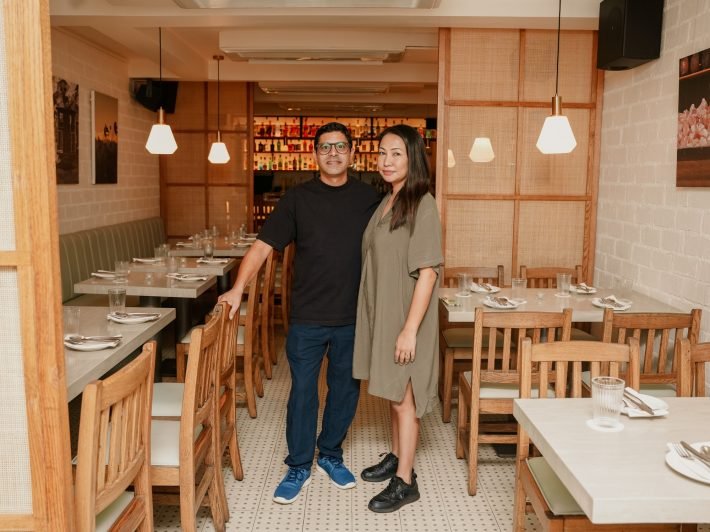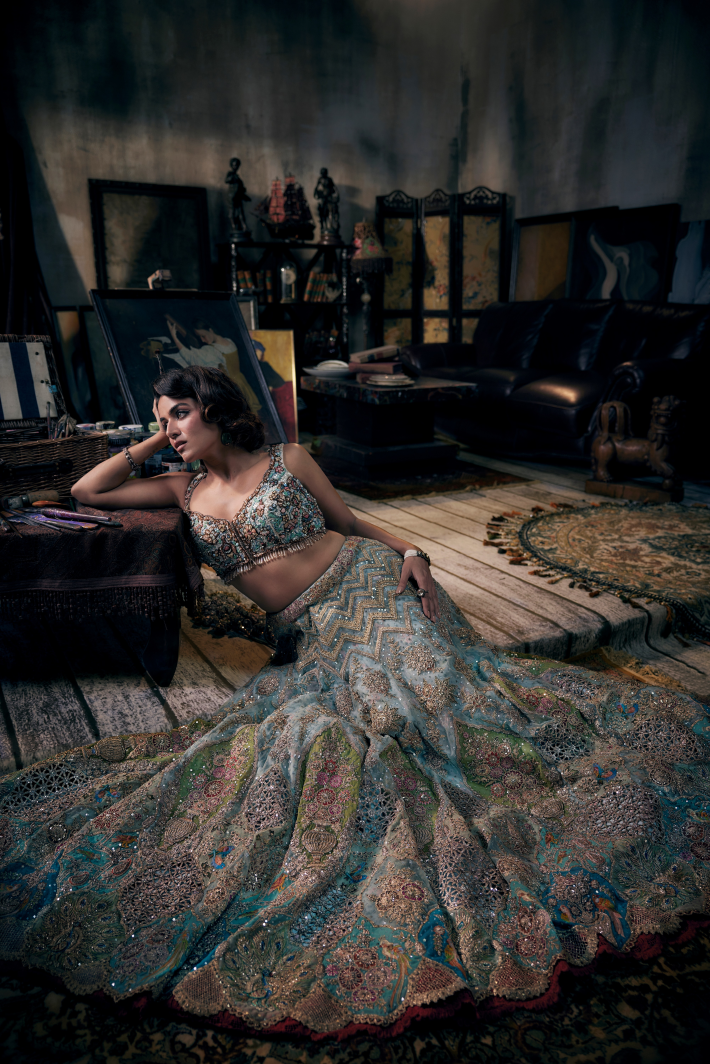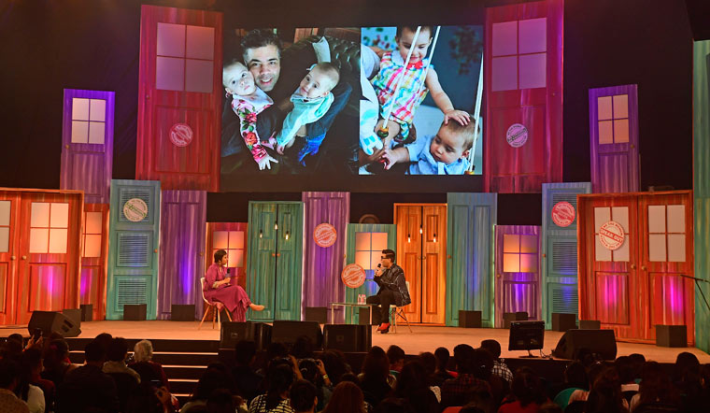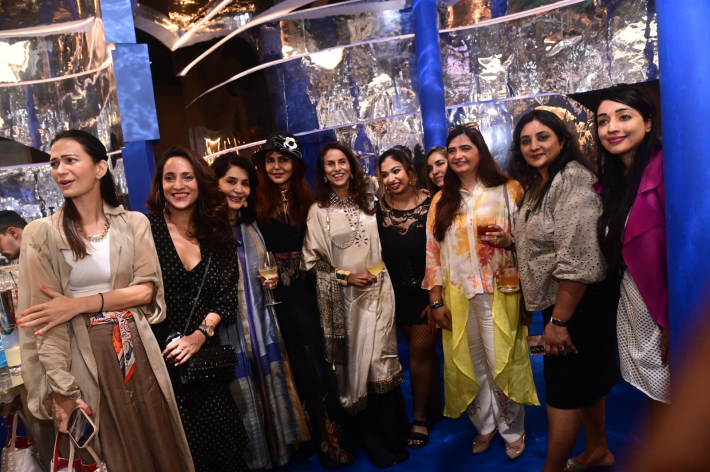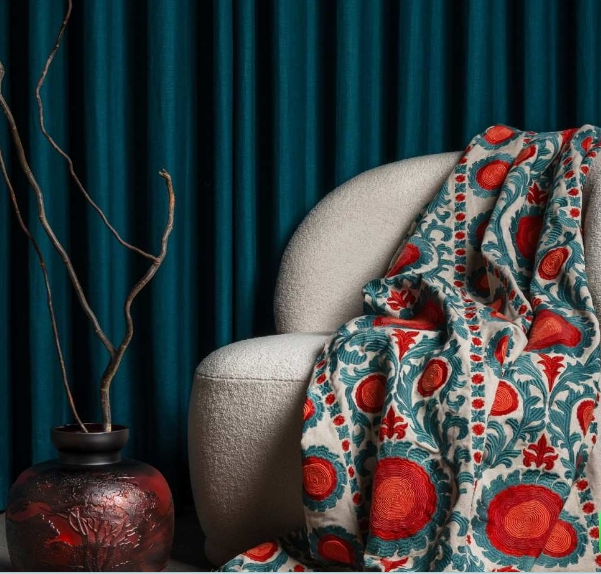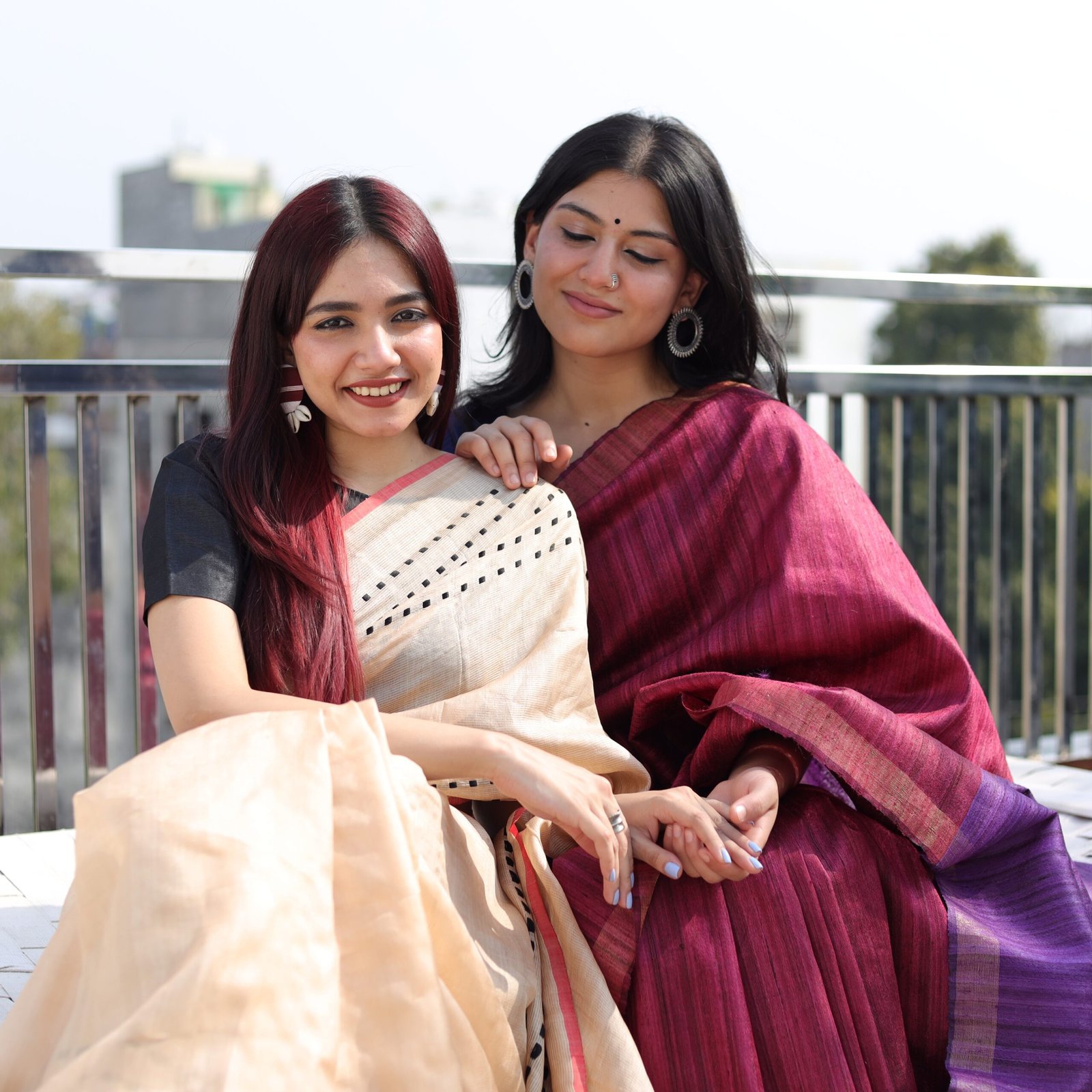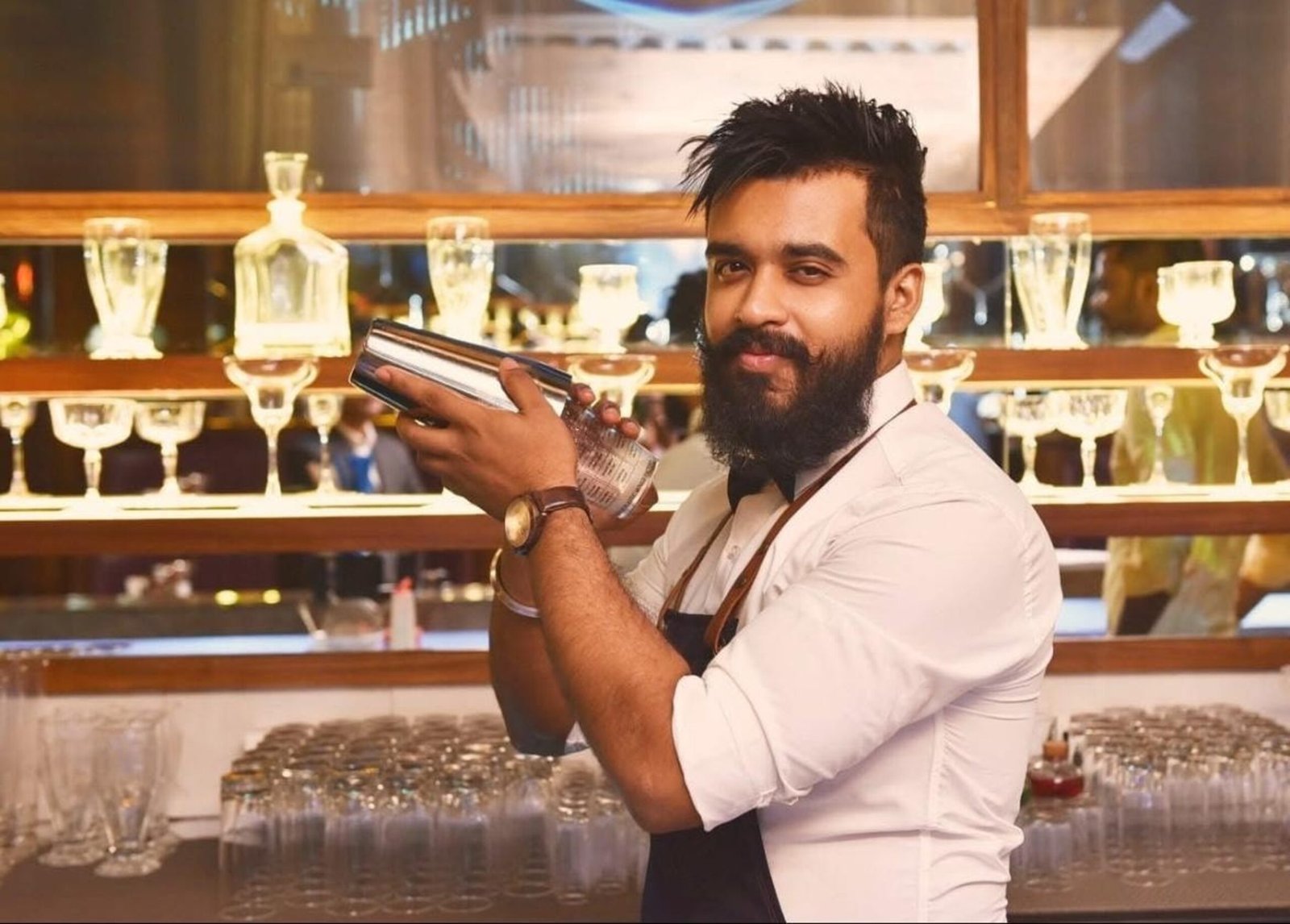In a world too often pigeonholed and boxed in by expectations and conformity, editor, author, content curator, podcaster… Manju Ramanan boldly defines life with authenticity… wearing it with grace, flair, and her signature collection of gorgeous saris and bindis.
With a background in literature, Manju’s journey began as a passionate student of words and went on to become a celebrated editor, author, playwright, and celebrity journalist, lending her voice to powerful narratives across platforms. Her ability to engage with empathy and her fearless articulation has made her a revered name in media circles in Dubai.
But Manju is not one to rest on accolades. Amidst the glitz of Dubai’s high-powered social circuits, she stands tall… unapologetically herself, embodying her ideals and values without being swayed by the noise around her.
Her creative universe doesn’t end with journalism. Manju has also written a poignant play, and is the driving force behind ‘Beyond October’, an initiative that offers strength, voice, and visibility to cancer survivors… a cause close to her heart and ours at TheGlitz.
I, Sumita Chakraborty, Editor-in-Chief, TheGlitz, had collaborated with Manju on a project and discovered that she is not just a professional of high caliber, but a woman of warmth, integrity and purpose. What struck me most about her was the beautiful contradiction she embodied – strength wrapped in vulnerability, warmth balanced with a quiet authority.
She had this rare ability to hold her ground with grace, to be kind without being a pushover. Her professionalism was impeccable, but it was her deeply rooted values that truly moved me. You could sense that she had walked through fire, yet still chose to be a beacon for others.
Manju is true to her roots but that doesn’t mean she is averse to change. She embraces change, tackles uncharted territories with confidence, and speaks her truth with unwavering clarity… traits deeply rooted in a legacy of powerful women, including her resilient mother and equally dynamic mother-in-law.
…Here, in this exclusive interview with Sumita Chakraborty, Editor-in-Chief, TheGlitz, the tables turn as the dynamic Manju Ramanan steps into the spotlight as the interviewee, gracefully fielding a volley of questions on her life, book and work… with wit, insight, and poise.
Over To Manju Ramanan

Manju, you’ve had such a fascinating journey… from being a Literature student to a celebrated editor, author, celebrity journalist, and now the driving force behind Rajan Lala’s autobiography, I Did IT! My Way. Did you always aspire to be a journalist, or was it a journey that chose you? Could you walk us through how it all began and what kept you going through the highs and lows?
Thank you so much for the kind words. Honestly, no, I never planned to become a journalist. I was deeply immersed in literature; I have an MPhil in English Literature from Maharaja Sayajirao University in Baroda, where I grew up. Journalism was never even on my radar. But life has its ways.
In 2000, my father passed away, and just a few days after his death… on 25th August – I got a call from the Times of India for an interview. Even though we were still in mourning and I’m an only child, I went, accompanied by my aunt. Unfortunately, when I reached Ahmedabad, there was no one there to interview me. I returned home feeling very dejected.
A few days later, they called again asking me to come. I went once more, hopeful… but yet again, there was no one to interview me. This time, I was furious. I handwrote a strongly worded letter to Mr. Kingshuk Nag, who was the Resident Editor at the time… an immensely respected figure in unbiased journalism. I didn’t know how big he was; I wasn’t from the journalism world, I came from academia.
In the letter, I poured out all my anger, telling him about my situation, how I came twice despite mourning my father, and how hurtful the experience was. I left the handwritten letter – two full foolscap pages- on his table under a paperweight. I went home, and told my mother that I would probably never get a job with The Times of India – not in the next 50 years – because of what had happened.
And my mother, who has always been my voice of reason, simply said, ‘Maybe that’s how it’s meant to be. Perhaps you should continue with academics if that’s what you really want to do.’
But then, three days later, another call came from The Times of India inviting me once again for an interview. I refused. I told them, ‘No, I won’t come. I already came twice, and after how I was treated, I don’t think it’s right for me to return.’
As they were discussing this amongst themselves, someone asked, ‘If we come to Baroda, would you meet us?’ I was about to say no, but once again, it was my mother who stepped in with her wisdom.
She said, ‘They’re chasing you, that’s all. Just because someone chases you doesn’t mean they’ll marry you… it’s only the chase! You haven’t got the job yet, so stop being arrogant. The best way forward is to go, attend the interview, and then say no if you still feel the same. But don’t throw away an opportunity you haven’t properly explored.’ She didn’t want me to regret the chance or later blame myself for not seeing it through. So I went.
By then, everyone at The Times of India already knew what I had done. People called me and said, ‘Do you know who you wrote that letter to?’ And the truth is… I didn’t. I genuinely didn’t know Mr. Kingshuk Nag. I was ignorant, and in that ignorance, I reacted emotionally. I wasn’t trained to navigate that world or to know the nuances of such situations.

When I finally went for the interview, I came face to face with the very man to whom I had written the angry letter. It was awkward. I felt so small. My initial anger had long faded, but now I had to face the consequences of my actions, face-to-face with the person involved. But he looked at me with grace and simply said, ‘I’m sorry.’
I was stunned. It was such a magnanimous moment. Here I was, a young girl from Baroda, and this man, despite everything, treated me with respect and kindness. That moment has stayed on with me.
Then came the actual interview. Since I genuinely didn’t want the job, I was brutally honest. They handed me a copy of the supplement – something like Baroda Times – and I went on a full critique. I told them it lacked Literature, poetry, and theater.
Coming from a background in Literature, language holds weight for me. I want gravitas in storytelling. So I said everything one shouldn’t say in an interview. Instead of praise, I listed everything I thought was missing.
I could tell that they were taken aback, but somehow, they didn’t flinch. Instead, they listened. It wasn’t the response I was expecting. What followed was the most unexpected turn in my career. Despite my open critique and the negative tone I’d set, they still offered me the job.
It was a turning point. This wasn’t the world I’d come from… this was media, the big leagues. The man I had written that letter to was calm and dignified, and in his presence, I realized the value of grace under fire.
It wasn’t just about getting the job, it was about how you handle your mistakes and how you grow from them. The whole experience became a lesson in humility and professionalism.
In that moment, I also realized that sometimes the path to something truly life-changing is paved with mistakes, anger, and even rejection. But the key is in how you rise above it, learn, and keep moving forward. That encounter, and the kindness shown to me, made me rethink everything.
It taught me that people, especially those in powerful positions… aren’t always out to put you down. They, too, are human, capable of understanding and forgiveness.
And how did you feel when you got the job?
And I was like, “What’s happening? I don’t want this job. What is going on?” Then they started asking questions. Maybe they just liked that I didn’t talk, you know? I wasn’t ready. I wasn’t doing this out of spite. I was just confused, asking, “Why is this what journalism is?”
I was 26 years old at the time, so I could afford to be arrogant, if that’s what you call it. I come from Literature, where you’re supposed to be part of some elite crowd, not that I agree with that notion. But that’s where I was coming from. And then they asked me about my salary.
Being the small-town girl that I was, they offered me an amount, and I asked for a thousand rupees more, thinking, “I’ve had my revenge.” And they said yes. I was like, “Wait, I got the job?”
Then my mother’s voice echoed in my mind, saying, “First, get the job, and then decide whether you want it or not.” So, I decided to give it a shot. I said yes, and that was the turning point of my life. As I say, I didn’t choose journalism; journalism chose me. I say that with all reverence and a lot of gratitude because that decision defined me to a large extent, and here I am today, talking to you after 25 years in this field.
Are you always such a firebrand?

No, I’m actually a very gentle person. I’m not confrontational. But yes, I am very clear-cut. No bullshitting. I don’t take nonsense. And another thing is that because I’m an only child, I’ve never had others fight my wars. I had to fight my own battles. If someone slighted me, I had to stand up for myself.
I can be the most accommodating and adjusting person, but there’s one line that, if crossed, doesn’t bode well with me. I think we all have our quirks.
Is it because you come from a family of very strong women?
Yes, I do. My mother is a very gentle person too, and she’s not someone who would go looking for a fight. We’re not the types to walk into a room and shout or confront someone. But if a fight comes to the table and someone challenges us, we don’t back down. We don’t initiate the fight, but we certainly don’t back off if someone tries to pick one with us.
I know you… You’re not a pushover, right?
I can be pushed over most of the time, actually. But I’m hoping to break that cycle because I’ve seen how badly it can traumatize people. I’m very empathetic, and in this profession, I’ve seen people jostling for power, fighting for bylines, for stories. It all felt unnecessary to me. It was always about who got the first story, who broke the biggest news. I come from Literature and poetry, where everything is philosophical, where you can perceive life differently.
So, the constant fight for power seemed odd to me. People would say, “You worked hard for that story, but tomorrow it will be yesterday’s news.” What could be more philosophical than that? You have to prove yourself every day, and you can’t rest on your laurels.
I felt the same even when my book launch happened… grand events in Dubai and Mumbai. I was interviewed, spoken to, and congratulated, but then I thought, “What’s next?” The workaholic in me was already hunting for the next project. For me, life is about exploring what I can do.
What about challenges, Manju? How do you tackle them?
In 2017, my ex-owners ran off with my money. That was the same year I was also the editor for Femina and Filmfare Middle East. Suddenly, I lost my position, and everything I had built up crumbled. I had to start from scratch. That was a traumatic experience, but I learned something valuable from it: life positions are temporary, and you can’t rely on power or fame. If you have merit, people will still pick up your call, even if not many will.
So I built myself up from the two people who answered my call. In that same year, I wrote my first play, JLT (Just Like That). It was about people not talking to each other. In some places, neighbours don’t even know each other’s faces. I wrote it with my friend Asad Raza Khan, and the play got many reruns. Watching the audience laugh at it, I realized that I can make people laugh. That was when I regained some of my self-esteem.
That same year, a couple who had a jewellery brand approached me for advice. They used to advertise in Femina, and when they met me, they asked for advice about expanding their business. I suggested they go solo instead of staying in a small space among hundreds of other brands. A few days later, they called me, saying that they would do a show and wanted me to be a part of it.
I had never done events before, but I gave it a shot. With my media connections, I managed to get multiple television channels involved in the event. It was a success. It taught me that you never know what you’re capable of until you try.
Can you tell us about some of the interesting projects you’ve worked on recently?
Later, a gentleman named Harmeek Singh approached me to help with promoting the Dubai Women’s Run. I had no experience with running events, but he believed in me, so I accepted. It was a reminder that the people who have faith in you can push you to think differently and achieve things you never thought possible.
I also have this WhatsApp group with professional women who wear sarees. It’s a closed group where women post pictures of themselves wearing sarees. I wrote a poem about wearing sarees, and they loved it. They asked me to recite the poem at their meeting, and afterward, I promised them a national platform: Run in Sarees. It was an idea that just came to me, and it took off.
Sorry to interrupt… Can you tell us a little more about the poem you mentioned earlier and how it led to a unique saree event?
I had written a poem about my childhood and why I wear sarees… something I’ll share with you in full later. A group read it and invited me to recite it at one of their meetings. I bought a 25-dirham chai-nashta ticket and presented my poem there. After reading it, I told the women, “You girls, I will give you a national platform… Run in sarees!
What inspired you to create the idea of running in sarees?
The idea came to me spontaneously. I remembered seeing Milind Soman’s mother running in a saree, and I thought, why not recreate that powerful image in Dubai? Picture this: women in sarees running through Dubai’s landscape. The visual came to me like a flash of inspiration.
How was the response?
It was overwhelming! Thirty-three women registered and ran in red cotton handloom sarees. They became part of the Dubai Women’s Run. I’m no longer associated with the event now, but I initiated this movement in 2017. Each runner supported Indian weavers by sourcing their sarees directly from them.
What was the significance of that event for Indian representation?
It was the first time an Indian – Harmeek Singh – was helming the run. It sent a clear message that Indian women were participating meaningfully in such global events. It all just fell into place organically.
What did you personally take away from this experience?
I realized I was good at content creation. Content isn’t limited to newspapers or magazines… it can be an event. I know what appeals to journalists, what they’ll want to cover. And this event was born from authenticity, not a gimmick. The image of women running in red sarees captivated the media. People called them “Goddesses” running through the streets.
Did this realization change how you approached your work?
Absolutely. I learned I could bring value beyond traditional formats. I even wrote a play that addressed issues like racism and gender, and I wove these themes into the characters and dialogues. It was my way of creating change.
Were there any major challenges during this period?
Definitely. We had hit rock bottom. I had lost 300,000 dirhams. But I needed to stay mentally alive and active.
That must have been very difficult. Did you ever think of giving up?
Never. I believe deeply in prayer. When Filmfare Middle East went away, my Guruji sent me a message: “You will bring it back.” That single line defined everything for me. And within a year, I did bring it back… under Danube. During that phase, I listened to Shafqat Amanat Ali’s “Yeh Honsla Kaise Jhuke” from Dor on loop daily. That song helped keep me going.
So challenges actually fueled your determination?
Yes, challenges spurred me on. I believe the human spirit is tested through adversity. How we respond defines who we are. I never had the privilege to give up.
On Writing Rajan Lal’s Book “I Did It! My Way!”

How did your journey with Rajan Lal’s book begin?
I had been with Filmfare Middle East since 2011. During my second stint there, I was asked to interview Mr. Rajan Lal by Mr. Rizwan Sajan, who knew him personally. I first met Mr. Lal in 2019 in Oman, where he had come with Shatrughan Sinha… Sinha had just switched political parties that day, I remember!
What struck you during the interview with Mr. Rajan Lal?
While speaking to him at his home, I saw meticulously preserved photo albums… dating back to 1924. His mother had maintained them with typed captions. She used to own a printing press near Handloom House in Colaba. The collection was priceless. I saw pictures of Morarji Desai, Dev Anand, and so many others.
Being a literature person with a love for history, I saw the archival value in it. This wasn’t just a family album… it was a subaltern narrative of the film industry, told through a man who was both insider and outsider. He was a producer, a dubbing king, and a close friend to many celebrities.
Why did you feel compelled to turn it into a book?
I felt the material was too rich for a 1,200-word article. For a student of literature and an avid history lover, this was a treasure trove for me.
As I glanced through the black and white pictures of Madhubala, Dilip Kumar, Raj Kapoor, Dev Anand, Vyjayantimala, Rajesh Khanna, Shammi Kapoor and more, I told him honestly, that 1200 word would hardly justify his life’s story. I told him, “Sir, this needs to be a book.” He said many people had suggested the same, but he didn’t know how to write it. I offered to write it if he would give me time and speak to me at length. He agreed.
How long did the writing process take?
It took four years and it was during Covid too. I had a full-time job and met him on weekends. Sometimes he was traveling, sometimes unwell. We began in June 2021. I started when I was still with Filmfare. Mr. Rizwan Sajan supported the project and encouraged me to go ahead. But we made it happen?
It was launched in Mumbai too?
On March 1st, 2025 the book was launched in Mumbai at The Leela amidst great fanfare and a smattering of Bollywood stars that included Shatrughan Sinha who launched the book along with guests of honor – Jeetendra, Anupam Kher, Priya Dutt, Rakesh Roshan and Shashi Ranjan. The dignitaries felicitated on stage were Dinesh Nair, the Owner of The Leela, Mumbai, veteran actor Ranjit, Mr Ketan Desai and Mr Rajan Lall’s close friends and associates.
Lastly, Manju, what next?
I see myself like a river. If you block me in one place, I’ll find another way to flow… sometimes quietly, like a stream; sometimes like a storm. I surrender completely to God’s will. I know I’m looked after. I didn’t get into journalism by chance… someone up there chose it for me. So who am I to interfere in that plan? So I know, I’ll flow on…


